

Remembering Kent Wong

Kent Wong in front of “The House that Kent Built”. UCLA Labor Center photo
Kent Wong died on October 8, 2025. He was sixty-nine years old. The director of the influential UCLA Labor Center for thirty years, he oversaw its expansion from four to forty staff and a corresponding growth in influence in Los Angeles and statewide politics. He was the fierce and effective advocate for expansion of the UC labor centers from two campuses to all of them. His memorial service at L.A. Trade Tech College on November 15 was attended by more than a thousand mourners.—Editor
DSA-LA is deeply saddened by the loss of Kent Wong, a longtime activist and powerful leader in the labor and immigrant rights movements. Kent was a tremendous force for justice, and he leaves behind a strong foundation for us to continue the struggle and apply all that he taught us. Kent was an uncompromising and tireless fighter for workers, immigrants, students, and others of the most vulnerable in our community.
My powerful journey with Kent Wong encompassed most of my adult activist life. I first met Kent in the mid-1990s, when I was Workers’ Rights Project Director for the Coalition for Humane Immigrant Rights (CHIRLA). We had started the movement to organize day laborers and I reached out to Kent to ask him for support to connect us with the L.A. labor movement. Since that first encounter, Kent and I embarked on a 30-year journey where he became my close friend, confidant, director and mentor.
Kent believed strongly that there is no greater power than when workers come together and organize. He was one of the early pioneers of integrating immigrant workers to transform the labor movement. You would always find Kent at every picket line, union strike action and major mobilization. For him, holding up a picket sign was a powerful weapon for justice. Kent also embraced and supported the efforts of worker centers and saw them as a part of the labor movement.
As an educator, Kent’s vision was to create the next generation of leaders in the labor, immigrant rights and social justice movements. Through his leadership, we created a Labor Studies Minor that grew into a vibrant B.A. program. Last month, we officially became a Labor Studies Department, the first one in the UC system. Kent had a vision to launch labor centers beyond he existing ones at Berkeley and UCLA. Today, there is a labor center in every UC campus.
On a global level, Kent was much beloved by the labor movements of other countries. He developed solidarity work between the U.S unions with the labor movements in China, Vietnam and Japan. I am grateful to have worked with Kent on a two-year project with the trade unions in Vietnam. I witnessed how much love and solidarity the workers of the world had for Kent.

Mayor Karen Bass, left in blue coat, unveils the sign that will mark a new square in Los Angeles, as Wong’s widow Jai and their two sons look on at Wong’s memorial service. Fred Glass photo
As an immigrant rights activist, Kent was always an uncompromising champion for the young leaders of the Dream activist movement. He worked with undocumented student leaders at UCLA to create IDEAS, the first ever campus student organization to represent them. Kent established the UCLA Dream Resource Center (DRC) as part of the Labor Center. The DRC has provided emerging leaders a safe and empowering space to create impactful social, policy, and narrative change. In 2011, Kent worked with young immigrant leaders to launch Dream Summer, the only national fellowship program for undocumented students. Over the past 14 years, Dream Summer has built an alumni network of over 1,000 immigrant rights leaders.
On a personal level, Kent embraced me for who I was – a soft spoken and quiet servant leader who prefers to work from behind the scenes. He always challenged me, however, to step up and make my voice heard whenever the moment called for it. He supported my work with DSA-LA and he believed in its vision of organizing to build a world where everyone can live a life of dignity, free from injustice and capitalist exploitation. Kent represented for me the true meaning of deep camaraderie and radical solidarity.
Our hearts go out to Kent’s family, close friends, and all who were touched by him. Today we honor Kent, and we continue forward in the path that he created for us to fight for a better world.
Rest in Power, Kent Wong.
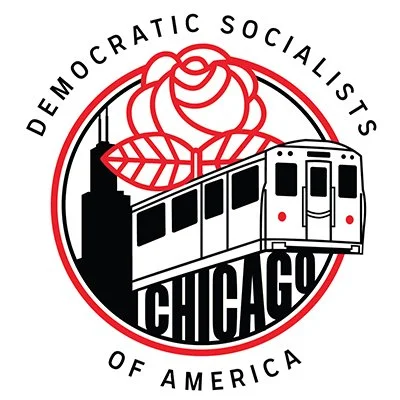

What Does It Mean to Betray DSA?
In the months leading up to the New York City mayoral election, there had been some unease in leftist online spaces about the possible results. Polling consistently showed for months that Cuomo was running behind Mamdani, and it may not have even mattered if the race narrowed to the two men. No, the anxiety over the election results was not whether Zohran Mamdani was going to win, but how Mamdani would govern. Every statement was scrutinized for possible concessions; every compromise seemed to portend even more.
Before the primary election, the dream of a leftist mayor could bathe in the promise of his most ambitious proposals without having to dwell on the realities of politics. Now that the general election is over, these very real concerns will need to be confronted, and those who decry electoral work (or of running DSA candidates on the Democratic party line) seem ready to call out any betrayal of the DSA by Mamdani. But it’s important to first understand what a ‘betrayal of DSA’ would look like, or even mean.
I’ve heard a similar spiel answer this question countless times at general chapter meetings and branch meetings, and in conversations with the press and interested non-members – what is DSA? The response generally includes some of the following phrases: We are a multi-tendency, multi-caucus organization; we are a mass-politics organization that is dedicated to anti-capitalism, anti-racism, and anti-imperialism; we include people from a broad range of ideological backgrounds on the left. Sometimes people talk about our ‘agenda’ in a local context, and sometimes they talk about national policy goals, like a Green New Deal or universal health insurance. Sometimes people talk about concrete next steps, and sometimes they talk about long-term ideals, like democratizing the workplace or decommodifying housing. All of this is to say that many people have overlapping, yet still different, ideas about who and what we are as an organization, and why we exist. These definitions are all true, but not completely true. How, then, can we be ‘betrayed?’
To start off with an obvious example, Mamdani could cancel his membership and denounce the DSA. Maybe he will do this after some huge break with NYC-DSA leadership in the future; but I doubt it.
Oftentimes, activists will talk about an elected official ‘betraying’ their constituents. This may take the form of accusing them of abandoning their campaign promises, or opposing what they had promised to support. Other times, activists just use the language of the ‘betrayal’ to mean that policies which they oppose are harming constituents. Plenty of MAGA activists will accuse left-wing politicians of ‘betraying’ America by allowing ‘open borders.’
In this case, Mamdani will almost assuredly be accused of betraying New York by the right and center when he simply pursues the policies he has campaigned on. But in the former, there could also be campaign policy reversals that may be considered a betrayal of DSA.
The New York Times asked Gustavo Gordillo, co-chair of NYC-DSA, about Mamdani’s then recent policy choices and whether they would alienate him from cadre membership.
The mayor-elect has made well-documented overtures to the business world, telling leaders in private meetings that he would discourage the use of the phrase, “globalize the intifada,” and was open to funding his proposals by means other than tax increases. He has also offered to keep Jessica Tisch, scion of a billionaire New York family, as police commissioner.
So far, none of these moves have angered Mr. Mamdani’s base. But Gustavo Gordillo, the co-chair of the New York City Democratic Socialists of America, said there was a line that Mr. Mamdani could not cross.
“Siding with the 1 percent over his base and the rest of the city is what would really pose problems to his governing coalition,” Mr. Gordillo said.
While none of the issues mentioned were part of the core affordability agenda (except, arguably, taxing the rich, although one could argue the spending is what matters more than the revenue raising), Gordillo makes clear that it’s more about the stance of the mayoralty and with whom it positions itself that will determine whether there is a betrayal. But what about the specific policies?
I think this is a gray area because of the nature of politics. In any negotiation, political or otherwise, you always demand more than you think you’re going to get. The other side will assuredly do the same. When the other side scoffs at your proposal, don’t offer concessions before they’ve made a counter-offer. So, with this in mind, it’s possible to see that not all of Mamdani’s agenda will get enacted, or that he even thought these policies could be enacted. If you want to lower universal pre-K from four years to three, you don’t ask for 3K. The other side will always fight expansions of welfare programs, so Mamdani might as well stake out a maximalist demand, knowing that he may have to negotiate down to a phased-in timeline or something later than 6 weeks. Would settling for less be considered a betrayal of the campaign promise, and therefore DSA? It probably depends on how much is compromised.
By now, the reader may feel the framework I have outlined here is nothing more than a slippery slope into rejecting accountability for our electeds. Rather than arguing that social democracy is good enough, I am asking us to think more fundamentally about what we are as an organization, and what expectations members can make of others. Consider first, for example, the differences between NYC-DSA and the national DSA’s agenda.
Time and again, both New York and national political media sought to tie Mamdani to planks of the DSA’s platform. The New York Post accused him of dodging questions about enforcing misdemeanors. NPR at least had the decency to quote our national website when they sought to define DSA’s priorities. When pressed on his position on nationals, Mamdani always clarified that his platform is on his campaign website, not on DSA’s. NYC-DSA leadership has also pointed to discrepancies between the chapter and national. The differences between the two reflect the varied backgrounds and experiences of members from across the country, and how delegates sought to shape national priorities at successive conventions. Part of the backgrounds and experiences that some delegates brought reflect a dearth of political power or opportunity from their chapters’ region; moreover, the political ideologies and tendencies which guide strategies in rural or suburban America no doubt differ from that of blue state, urban organizers. Again, these are all parts of DSA, but not completely DSA.
If our organization includes people who describe themselves as communists, Marxist-Leninists, and democratic socialists, it means that our organization will have long-standing disagreements over goals, practices, strategies, and more. When a chapter endorses a candidate for office, though, they are not endorsing a multitude – they are endorsing a single person who is from one of those tendencies, or doesn’t clearly identify with any one of them. When a democratic socialist candidate who believes in a dirty break strategy, for example, gets elected and governs as a democratic socialist who believes in the dirty break strategy, it shouldn’t come as a surprise. It should also come as no surprise that the Maoists or Trotskyists who believe in a clean break would find reason to disagree with this new elected official. But when an organization contains so many multitudes and allows for diversity of thought, it also means that the accusation of ‘betrayal’ is harder to justify. A democratic socialist elected official who governs according to their own beliefs is not betraying the other factions within DSA by not suddenly adopting someone else’s beliefs. You can disagree with someone in shades or degrees, and still appreciate the capacity of your organization to put forward candidates who will advance a movement that allows for greater consideration of left-wing ideas.
As the Mamdani mayoralty will soon take hold, we should hold true to our vision of a better future and demand the most that we can from him. We do this as we demand the city council, state legislature, and Governor Hochul to work with him, too. That there will be compromises made to his campaign platform, we can only assume. I would never counsel anyone to give over absolute trust to a politician. Just remember, though, that if people accuse Mamdani or others of ‘betraying’ DSA, we should ask if there’s good reason to believe it, or if these accusations are just manifestations of the ideological and strategic disagreements between people that existed long before the election.
The post What Does It Mean to Betray DSA? appeared first on Midwest Socialist.
MAGA one year before the 2026 elections
This is the first of a three-part series assessing MAGA, developing anti-fascist strategies, and organizing for democracy and affordability in Maine and nationally.
Trump’s had a bad month so far. Although Senate Democrats caved on the shut down, Trump’s numbers have slipped as many voters blame the Republicans for SNAP cuts, federal layoffs and furloughs, and airport chaos. Yucking it up with Saudi Prince MBS failed to distract from his disorganized retreat on the Eptsein files, MTG’s mid-term resignation, and early Wall Street wobbles. Meanwhile, there is a noticeable shift in mood on the left. Katie Wilson won big in Seattle… as did centrists in New Jersey and Virginia. Mainers crushed a Republican referendum to suppress voting rights. Millions turned out for No Kings! rallies in October and significant and sustained opposition to ICE invasions has thrown sand into the gears of Trump’s pet militia. Trump’s chummy approach to his meetup with Zohran Mamdani might indicate he’s feeling vulnerable on the affordability front. All this is to the good, but don’t count MAGA out.
Trump has accumulated a great deal of power. He has succeeded in remaking the Republican Party into a far-right machine and has done lasting damage to the liberal welfare state. He has remade NATO, crippled the Iranian challenge, and is openly pushing for a coup in Venezuela. The Supreme Court rubber-stamps 90% of what he does. And there is more to come. It is easier to destroy than to build. Moreover, Trump and the MAGA right are building a purified imperialist administrative state that will not “go back to normal” even if Schumer and Jeffries claw back a narrow majority in the House. There is little prospect in the short term for completely reversing Trump’s cuts and evisceration of democratic rights, and even dimmer prospects for reforms and spending on the (limited) scale of Biden’s (failed) Build Back Better.
No one has a crystal ball, but it’s worth thinking through potential scenarios.
[Read next: Mainers don’t want Janet Mills for Senate]
The first scenario—and the most likely to my mind—is a Reagan-to-Bush-to-Clinton trajectory, that is, frontal Republican attacks on unions, civil rights, and democracy followed by centrist Democratic modifications of the worst excesses. Those modifications will come as a relief, but the danger lies in accepting a “new normal.” Clinton did little to undue Reaganism. Newsom, Shapiro, and Whitmer offer no systemic solutions to the problems ordinary families confront today. Mamdani and Wilson—along with Brandon Johnson in Chicago—may serve as major or minor outliers in fighting for pro-worker reforms, but these will not be championed at the federal level by the Democratic Establishment. Furthermore, the Supreme Court stands ready to strike down any transformative efforts that happen to sneak through.
The second most likely scenario is a third Trump term, whether headed by Trump himself or his heir. We should not underestimate the MAGA elite’s determination to hang on to power by any means, legal or otherwise. A recession may undo them temporarily, but Reagan used the 1982 recession to smash unions, strip social spending, demoralize his opponents, and consolidate his popular and ruling-class support. Authoritarian figures are often able to ride out chaotic circumstances as long as there is no coherent alternative. If you had to bet on Schumer or Trump in a political brawl, who do you think would come out on top?
A third scenario could open up with a massive electoral rejection of MAGA in 2026 and some initial rise in social struggle, leading to an AOC-type victory in the presidential primary and a related qualitative shift in the level of class struggle, perhaps anchored by a national strike on May Day 2028. This scenario poses the greatest threat to the billionaires as a class and MAGAism as a movement. It’s the perspective we should fight for, but it’s also the least likely outcome in my view. Why?
Despite Trump’s wobbles, the underlying balance of forces between the oligarchy and the working class still tilts strongly in favor of the rich. The billionaires tolerated the liberal welfare state—expansive public education, civil rights legislation, Medicare, Medicaid, and Social Security—for a long period. From Reagan to Obama, both parties hacked away (sometimes drastically) at it over the long neoliberal era, but they did not eradicate it. The billionaires adapted and learned to get what they needed from the state under the given circumstances as they paid ever diminishing taxes in exchange for social control at home and global control abroad.
Trump has opened a new path for them. And they are demonstrating an inclination to rule in a different way. They are not only surrendering to Trump out of moral cowardice, they are also plowing trillions into AI, oil, banking, military production, etc. Lip service to climate change is out, an ugly feeding frenzy is in. The bankers are sensing hundreds of billions in windfall profits by privatizing Social Security and public education. Besting China and breaking unions are their organizing principles and nearly a trillion dollars a year in military funds will buy off any “constitutional” brass in the Pentagon. The billionaires might have been slow to Trump’s party, but they’re drinking from the punch bowl now.
Against this juggernaut, elites in the liberal political class are unable to imagine a world beyond free-market neoliberalism. Like the billionaires, Schumer and Jeffries are not only political cowards, they see incentives for their own social layer in containing the resistance to those strategies that land them back in charge. This makes them a weak force in the face of Trump’s lust for power. However, they are not without resources: they have practically unlimited money, a small stable of national Democratic politicians who have figured out they must at least posture as radically anti-Trump, and, most importantly, no more than the beginnings of an organized opposition to their left.
[Read next: The case for Troy Jackson]
Despite some recent counterexamples (Mamdani, UAW stand up strikes, ICE protests, etc.), the U.S. working class remains fractured. A historical process of sustained class struggle is the only means to construct new consciousness and mass organizations. This process could develop relatively quickly (several years), but we are starting from a very low level of organization, so it will most likely be more drawn out than in previous periods of heightened class struggle in the U.S. (1905–1919 or 1933–1938, for instance). There are other enormous challenges, including social media spectacle, generational activist discontinuity, the dispersion of working-class life, robber barons’ ability to withstand company-specific strikes, international production and distribution, etc. None of that is insurmountable, but it speaks to the continuing vulnerability of class-based challenges to both liberalism and MAGAism.
Socialists argue that fascism is a counterrevolutionary, extraparliamentary movement posing falsely as a challenge to capitalism. However, once they come to power, fascists rule in the interest of, and with the support of, the capitalist class. These two aspects must be considered simultaneously. In Germany, the fascist movement came before the fascist state. However, Italian fascism came to power earlier as a political force several years before it succeeded in completely remaking the state in its own image. For instance, resistance leader Antonio Gramsci retained his parliamentary immunity until 1926, four years after Mussolini’s assumption of power. In the Spanish, Chilean, and Argentine cases, varying combinations of fascist movements and military maneuvers via the armed forces led to fascist (or fascist-type) states. The German and Italian cases might be classified as “fascism from below,” while the Spanish, Chilean, and Argentine cases may be classified as “fascism from above.” The Jim Crow State in the U.S. and Modi’s India represent varieties of the species.
In my mind, what matters most here is directionality. It is less important to classify MAGA as a “fully” fascist movement and more useful to determine its potential to move in that direction. In my view, Mamdani was right, “yes,” Trump is a fascist. But does it matter how we define MAGA?
Sun Tzu wrote in The Art of War, “Know thy enemy and know yourself and you will not be defeated in one hundred battles.” No one bats 1.000, but his point stands. If Trump and MAGAism are lurching towards fascism, we need to study their strengths and weaknesses, redress our own shortcomings, and develop specific initiatives to drive a wedge into their base.
I will return to this question next week in Part 2 with some lessons from past generations and strategies we can pursue today to shift the balance of forces in favor of the working class.
[Read next: No Kings! speech by Portland city councilor Wes Pelletier]
The post MAGA one year before the 2026 elections appeared first on Pine & Roses.

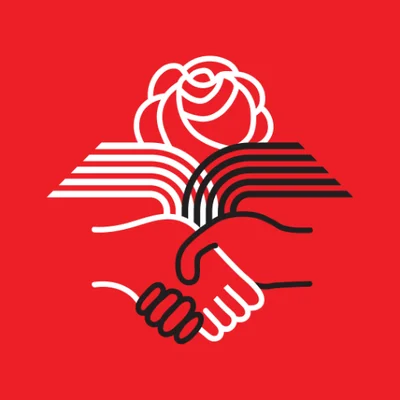

Victory: A.I. Rent-raising software banned in Portland
Yesterday Portland became the 12th city in the nation to pass a ban on software used by corporate landlords to coordinate rent spikes. We showed up, and our collective effort helped push the council to a loud and clear approval of this crucial policy!
DSA City Councilors Angelita Morillo, Mitch Green, and Council Vice President Tiffany Koyama-Lane introduced the ordinance to end the use of this price collusion software. On the same day, Oregon Attorney General Dan Rayfield announced a landmark settlement of over $7 million with Greystar Real Estate Partners for using RealPage’s rent-price ripoff software. This significant penalty sends a clear message about what will happen to greedy landlords when they try to use A.I. to raise our rent!
Portland’s action also reflects a broader movement happening at the state and federal levels. Senator Ron Wyden’s proposed End Rent Fixing Act mirrors the city’s ban and goes further by empowering tenants to challenge landlords in court. Local leaders like DSA-endorsed candidate Dr. Tammy Carpenter, running for House District 27, are leading the charge for stronger statewide rent control and protections for renters that actually give us power to fight back against the landlords that want to rip us off.
Landlords are on notice: tenants are getting organized, and we’re coming for what’s ours!
The post Victory: A.I. Rent-raising software banned in Portland appeared first on Portland DSA.
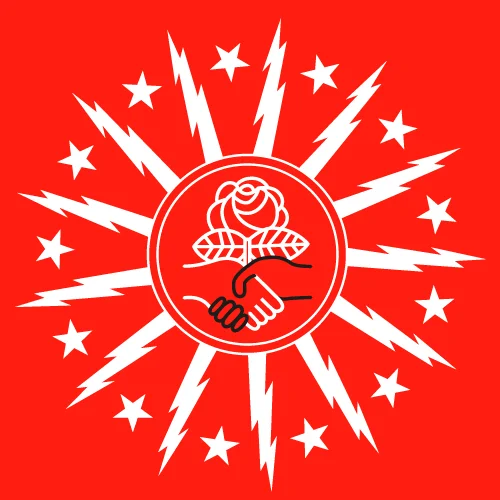

Buffalo DSA Endorses Adam Bojak for Assembly District 149

With record member turnout, and 96 percent of voters in favor, Buffalo DSA has voted to endorse Adam Bojak for New York State Assembly in District 149. The Buffalo DSA Steering Committee looks forward to working with Adam and his campaign toward a socialist future for Western New York.
Adam has been a dedicated, dues-paying member of Buffalo DSA since 2017. A leader in the chapter’s early years, and previously endorsed for Assembly in 2020, he has organized primarily with our Infrastructure (formerly Housing) and Electoral Committees. Adam’s commitment to DSA and its principles is also evident across a decade of fighting for the working class. In addition to serving as assigned counsel in Family Court, he takes on tenant legal cases pro bono. Over the past decade, he has never charged a housing justice client for services.
Through a robust endorsement process, the chapter determined that Adam’s campaign shares our goals for housing justice, universal healthcare, labor rights, and social equity. Additionally, despite New York’s undemocratic closed primaries and ballot access hurdles hindering Buffalo DSA’s political independence, the campaign nonetheless shows potential to build toward a true workers’ party. For too long, Republicans and Democrats alike have exploited our class and ignored our needs; Adam’s proud, socialist campaign offers us new ways to fight the capitalist status quo and agitate the masses.
Last, but not least, the incredible turnout we saw in this vote shows the strength of the American socialist movement, and of our organization. We urge all members and inspired supporters to help Buffalo DSA sustain our organizing–not just for Adam, but for our entire political project. This is our chance to build on our momentum for Good Cause Eviction and the New York Health Act, and continue to support workplace organizing and the labor movement.
We need you. Join DSA today and get involved in our committee work, to learn the same skills and principles that brought Adam’s campaign to life.
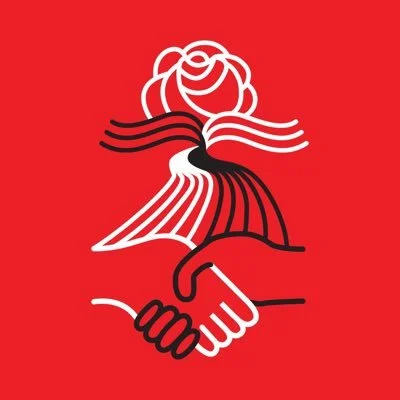

RVDSA, UFCW Local 1459, and Area Labor Federation Pass Pro-Labor Resolution in Easthampton


Illinois Deserves No Applause for Funding the CTA
On Halloween, the Illinois General Assembly voted on a $1.5 billion funding package for public transit in Chicago. This budget funds the Chicago Transit Authority, Metra, and PACE, in addition to replacing the Regional Transportation Authority with a new board, the Northern Illinois Transit Authority.
This legislation comes after the Illinois General Assembly failed to fund public transit during its regular session. CTA leadership, workers, and local leaders spent months raising the alarm. The CTA initially projected service cuts of 40%, including cutting more than half of its bus lines and ending or limiting service on most train lines. This apocalyptic estimate was revised down only after the CTA pledged to increase fares and received an infusion of cash from the Regional Transportation Authority.
As socialists, it shouldn’t be surprising that a state government led not by working people, but by an “actual billionaire”, didn’t bring this crisis to a just conclusion.
Instead of rushing to fund the city’s transit, a system nearly a million riders rely on every day, the state government – led by Governor J.B. Pritzker – played a game of chicken with leaders of the city and the CTA by hammering out agreements in private up until the last moment, leaving the fate of workers in Chicago uncertain.
After passing legislation in the eleventh hour, the governor expects us to applaud his benevolence in not firing the gun he pointed at the heads of the city’s workers. He deserves no credit for averting a catastrophe he helped engineer.
While the increase in the CTA’s budget has been lauded by political leaders in the Democratic Party, it comes at a cost to working people. The methods of revenue raising – sales taxes, toll roads, and increased fares – all come directly from the pocket of workers in Illinois. These regressive taxes place yet more of the state’s tax burden on working class people while the wealthiest people in our state escape paying their fair share, including a proposed tax on the investments of billionaires that was killed by Pritzker himself.
As the leading socialist organization in Chicago, CDSA has fought for full funding of the CTA and democratic control of our transit. We cannot be satisfied with any budget that forces workers who are given less and less to pay more and more. Until we win a democratic economy controlled by the working class, our minimum demand remains the same no matter what budget crisis threatens our communities: Tax the rich.
The post Illinois Deserves No Applause for Funding the CTA appeared first on Midwest Socialist.
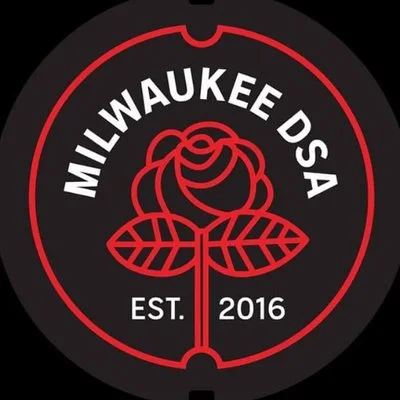

Milwaukee DSA calls on common council to overrule mayor’s veto of 4% worker raises
The Milwaukee Democratic Socialists of America (DSA) are calling on the Milwaukee Common Council to overrule Mayor Cavalier Johnson’s veto of a 4% raise for city workers.
The mayor’s veto comes days after the Milwaukee Common Council—with the vocal support of DSA-endorsed Alderman Alex Brower—voted 13-1 to increase the raises in Mayor Johnson’s proposed budget, which initially only included a 2% pay increase for general city employees. Despite this overwhelming support for the 4% raise, the mayor used his veto pen Tuesday to drop the raises to 3%.
“Mayor Johnson’s letter regarding the veto asks if there is a ‘better way’ to incentivize residency, and we have one: pay a fair wage,” Ian Gunther, chief steward of American Federation of State, County, and Municipal Employees (AFSCME) Local 47 said. “Workers should not pay the price for City Hall’s failure to budget for the workforce that keeps Milwaukee running.”
Union officials with AFSCME, whose members work across multiple departments in the city of Milwaukee, said the 4% raise included in the amended budget was already a compromise of their initial demands.
“The residency tier was a concession, not our demand; we fought for a 6.5% raise for all,” Gunther said. “With inflation at 5.9% over the last two years, and no raise last year, cutting this back to 3% is effectively a pay cut.”
Milwaukee DSA is urging its membership to contact City Hall and tell officials there to support city workers with a 4% raise, overruling the mayor’s veto.
SEE MORE: Tell City Hall to Support City Workers
“Elected officials need to hear from regular people that they support the raises in the budget as amended by the Council, which raised wages by a total of 4%,” Brower, who represents District 3 on the Common Council, said.
Milwaukee DSA is Milwaukee’s largest socialist organization fighting for a democratic economy, a just society, and a sustainable environment. Join today at dsausa.org/join.


Political Education in Latin American Social Movements: The CLOC Inspires
By: Juan Reardon & Nils McCune
November 2025
“Formation must be linked to a strategic political project for the transformation of society. This very project is constantly under development and formation must be part of the process. For this reason, formation cannot be dogmatic nor spontaneous but instead should be prepared, planned and combined with the development of the strategic objectives of the organization.”
– La Via Campesina
Introductory Note
Across a vast Latin American landscape, the imperialist project of past and present runs up against a plurality of organized resistance. Be they extractive mining conglomerates and the dams they need built, corporate agribusiness and its endless expansion of the agricultural frontier, or the financial capital behind it all, the incursions of capital into Latin America – with the collaboration of corrupt local elites – are almost always met by an extraordinary diversity of worker-, student-, peasant-, Indigenous-, Black-, LGBTQIAPN+- and women-led movements defending their lived, lands, waters, territories, peoples, histories, and horizons. When one looks specifically to the countryside, Latin American social movements stand firm in the recuperation of ancestral knowledge, the defense of multiple ways of life, and the popular construction of food sovereignty – the right of all peoples to define, develop and defend their own food systems through the exercise of rights to land and territory, agroecological production systems, and an end to free market neoliberal impositions. In contrast to the amnesia characteristic of imperial ‘America’ [See: Monroe to Trump], the place known as Nuestra América (Our America) is the carrier of a historical memory rich in organizational experiences and approaches towards collectively building social justice, sovereignty, rights and self-determination. In the face of military dictatorships, fascism and armed extractive industries, the struggle for democratic transitions towards just societies has developed a creative maturation of strategies and tactics among popular movements, with political education at the heart of many.
The Coordinadora Latinoamericana de Organizaciones del Campo, or Latin American Coordination of Rural Organizations (CLOC), is a “movement of movements” that includes all Latin American member organizations of the global peasant movement La Via Campesina (LVC). CLOC’s remarkable experience in combating colonialism, racism, patriarchy, agribusiness and capital’s extractivist agenda has given rise to a continental system of political education beyond the scope of traditional cadrefication. CLOC’s is a process of experience- and reflection-based education the movements call formación.
CLOC-Via Campesina: Who, What, Where and Why?
The Latin American Coordination of Rural Organizations (CLOC-Vía Campesina) is a continental articulation of peasant, farmworker, fisherfolk, and other land- and territory-based movements with decades of direct experience in the struggle for human, economic, social, cultural, and political rights. The accumulated experience of cadre within CLOC is deep, as many come from the collective experience of building revolutionary transformation in local, national, continental and international contexts. Born in 1994 from an alliance of people’s organizations mobilized in what was known as “500 years of Indigenous, Black, and Popular Resistance”, a protest against official celebrations of Columbus’ arrival to the Americas, CLOC’s steadfast embrace of class struggle offers a profound and pluralistic understanding of socialism, as it stands at the forefront of the struggles against patriarchy, racism, colonialism, capitalism, neoliberalism, and imperialism in the effort to build a new society free of oppressors or oppressed in right relation to Mother Earth.
Currently, the CLOC includes 84 member organizations in Latin American and Caribbean countries. Some of its more well-known members are Brazil’s Landless Workers’ Movement (MST) [See: Brazil’s MST by DSA], Chile’s National Association of Rural and Indigenous Women (ANAMURI), Cuba’s National Association of Family Farmers (ANAP), Haiti’s Papaya Peasant Movement (MPP), Puerto Rico’s Organización Boricuá for Ecological Agriculture (Boricuá) and Guatemala’s Peasant Unity Committee (CUC). Among its many efforts, CLOC is dedicated to consolidating food sovereignty at the levels of nation and territory by multiplying experiences and knowledge in agroecology. To confront the living legacies of colonialism, patriarchy and racism, CLOC connects peasant organizing efforts with those of workers, students, and others disproportionately demeaned and disenfranchised by corporate interests.
At the global level, CLOC brings together the struggles for peasants’ rights in Nuestra America with permanent solidarity with the Palestinian people in their struggle for life, rights, and sovereignty. The CLOC campaign “Sovereign Peoples, People in Solidarity”, for example, helps people across the continent hear from and connect with the efforts of the people of Cuba, Haiti, Venezuela, and Nicaragua to build and sustain transformative political projects while resisting U.S. imperialist aggression and unilateral coercive sanctions. Unapologetic in nature, CLOC expresses a firm and public commitment to “furthering debates that contribute to building the theoretical and programmatic foundations for a socialist project in the Americas.”
Many of these debates take place through CLOC’s formación infrastructure, processes, and programs. The CLOC’s ‘Banners of Struggle’, available online in Spanish, give a sense of its vision for structural, democratic change to defend life, biodiversity, and rights in the Americas:
- Popular, Comprehensive, and Redistributive Agrarian Reform
- Peasant Agroecology based on the Recovery of Ancestral Knowledge
- Food Sovereignty based on Public Policy supporting the Peasant and Small Farm Sectors
- Implementation of the United Nations Declaration on the Rights of Peasants and Other People Working in Rural Areas (UNDROP)
- The Construction of Popular Peasant Feminism
- Alliance-Building with Organizations of Other Sectors
- Youth-led Processes for Intergenerational Renewal
- Internationalist Solidarity
- Political, Ideological and Technical Training or formación…
What is Formación?
People’s movements develop a collective identity based on a shared analysis and, above all, a shared experience of struggle for a fundamentally different society. As noted in DSA’s 2023 article on Paulo Freire and Political Education, “there can be no theory that doesn’t inform practice, and vice versa. While distinguishable, the two must be inseparable, two sides of the same coin”. While in some contexts [See: Global North] for one person to wear “many hats” – to the point that often there can be meetings with more organizations “present” than people in the meeting – this can be problematic and is often an obstacle in the construction of a collective political project. Within the CLOC’s political culture, it is understood to be much more advantageous to have a shared analysis and greater levels of organicity – which is a kind of organizational culture that helps individuals understand where their unique contributions can be most impactful and appreciated within the larger needs of the collective. There is a popular saying that reflects this concept: “It’s more helpful to have one idea in a hundred people than one person with a hundred ideas.” Movements create specific moments for people to share their unique thoughts, reflections and opinions – with consensus and unity being the overall objectives – adjoined by moments in which members are expected to carry out responsibilities effectively without imposing their own desires or opinions on the collective’s agreed-upon commitments.
Formation is simply one part of a larger whole. As social movements or popular organizations attempt to change society, they must take action of some kind – whether that be through street protests, sit-ins, occupations, encampments, boycotts, lawsuits and beyond. Action is a moment in a long-term struggle, and should be planned and carried out collectively. Organization is another moment; this is when people debate and decide what their long-term vision is, and what kind of a structure can help them get where they hope to go. Assemblies, internal elections, designation of roles, and the creation of political positions are all part of organization. Formation, in turn, is a moment of struggle in which people temporarily remove themselves from action in order to critically reflect upon that action. Formation gives form to the action of an organization. By studying their own experiences and mistakes, as well as those of others across borders or throughout history, organizations can more effectively adjust their strategies and tactics, to be able to return to their practice with a more accurate understanding of their context and situation. The cycle of action-reflection-action, like the practice-theory-practice cycle described by Paulo Freire, is part of a collective movement through history known as praxis, as people resist and learn from that resistance. Formation is part of a critical process of collective self-preparation for world-changing activity.
According to La Via Campesina’s International Formation Collective, of which CLOC is an integral part, “formation is an infinite and permanent process of producing, socializing and sharing new knowledge derived from confronting ideas and comparing them with reality. It is a process of producing and reproducing the knowledge of our own reality, including the commitment to seek and distinguish our unique reality from the rest. All of this, of course, not only to understand the world but with the intent to transform it.”
Over 30 years into its development, the many movements that make up CLOC now maintain multiple formation processes with diverse tracks and methodologies. Designed to prepare new and experienced grassroots cadre for a lifelong – often difficult and dangerous – journey of political engagement for social transformation, these processes also serve to strengthen internationalist unity within diversity that is unique to the CLOC and La Via Campesina.
A few of the CLOC’s most prominent formation processes are:
-
Latin American Institutes of Agroecology (IALA)
Beginning with the IALA Paulo Freire in Barinas, Venezuela, the IALA model of peasant universities created by and for member organizations of the CLOC has now spread to include Argentina, Brazil, Chile, Colombia, Cuba, the Dominican Republic, Mexico, Nicaragua, Paraguay, Puerto Rico and Venezuela. These autonomous social movement universities provide advanced training in agroecological production methods, as well as organizing skills, dialogue, and reflection to learn from concrete struggles and improve the practice of social movements in territories.
The IALAs are a space of Latin American integration that recover the historical memory of 500 years of colonialism and over 200 years of formal independence while US neocolonialism has continued.
- Political and Ideological Formation Schools
Organized at two distinct levels – regional grassroots leadership and continental organizational leadership – the CLOC’s Political and Ideological Schools aim to consolidate an experienced collective of cadre at the national, regional, and continental levels capable of accompanying popular struggles with political clarity and determination.
At the regional levels, both the “Andean School” (Venezuela, Colombia, Ecuador, Peru, and Bolivia) and “School of the Southern Cone” (Argentina, Brazil, Chile, Uruguay, Paraguay) host grassroots organizers in a diversity of national venues – schools, churches, cultural centers, and more – where selected participants share organizational updates, contextual analyses, contributing to a dialogue of knowledge as well as mística, meals and other daily commitments (cooking, cleaning, studying, and more).
At the continental level, the rotative 15-day Egidio Brunetto School (held in different contexts and countries each time it’s organized) and multiple short-courses held at Managua’s Francisco Morazán International Peasant School host leadership development processes for those who have completed courses and processes at the regional levels.
- Continental Women’s Schools
The CLOC’s Continental Women’s Schools are about empowering rural women organizers in what La Via Campesina defines as “popular peasant feminism,” a uniquely movement-based contribution to grassroots feminism that centers class analysis and the collective construction of food sovereignty. The most recent CLOC Women’s School took place in the Dominican Republic (May 2024) –- the sixth such school in recent years. In it, Nicaraguan feminist leader Yolanda Areas Blass noted that, “each region in La Via Campesina used to organize their own political education processes. Now we have been able to strengthen the school system of the Women’s Articulation from the first International Women’s School carried out in Africa, where we advanced globally in the discussion about popular peasant feminism and about women’s political participation.” From grassroots to global, the CLOC and Via Campesina’s popular peasant feminism are contributing to other important formation processes such as the Berta Cáceres International Feminist Organizing School (IFOS).
- Continental Communication Schools
Involving many of the same grassroots leaders engaged in the above mentioned processes, the CLOC’s Continental Communication Schools are an equally important cycle of action, reflection, and matured action designed specifically to deepen political and technical expertise in “popular anti-capitalist communication.” According to their own reporting, the 5th Continental Communication School (online due to Covid-19) included critical reflections on “the concept of internationalism and its implications for popular struggles” as well as “the ongoing challenges facing communication in CLOC organizations.”

Participant communicators, “learned about and evaluated CLOC’s current continental communication work as a counter-hegemonic strategy in the class struggle.” They then, “delved into the nature of CLOC’s communication, current strategies and challenges, internal and external communication tools,” before engaging in practical, “workshops strengthening skills in areas such as photography, video, audio, graphic design, social media, newsletters, and internal communications”.
“The rich process of political education in popular communication,” left participants of the 2020 course with, “many lessons learned, challenges identified and, above all else, a growing collective (of communicators) with transformative dreams and hopes, strengthened by a revolutionary and internationalist spirit.”
- Continental Youth Encampments
Last but by no means least, the CLOC’s multiple youth-led processes feed into their own larger political education process known as ‘Encampments’. Each held in a unique national/historical context, hosted by the youth of a CLOC-LVC member organization, dozens of organized youth gather to, “promote formation and reaffirm the principles of CLOC Via Campesina as well as to exchange productive experiences, celebrate Latin American and Caribbean culture, cultivate the mystique and strengthen the peasant struggles of the regions of our territories.” In Spanish only, the following documentary shares some of the voices, smiles, and experiences of the XVII Youth Encampment of 2022.
Closing Remarks
Latin America’s Coordination of Rural Organizations (CLOC) is a living, breathing, and learning articulation of people’s movements prioritizing the political development of cadre within a larger process of action, reflection, and matured action aimed at consolidating a socially just and ecologically sound society for all. It listens to and learns from its own organizers – encouraging honest debate amongst the many – while encouraging friends and allies to contribute their own experiences through a dialogue of knowledges. From a place of organizational strength and sincerity, the CLOC learns while teaching and teaches while learning. For those of us engaged in our own processes of political education for societal transformation, the CLOC inspires.
Readers interested in contacting the CLOC directly can do so in both English and or Spanish emailing: secretaria.cloc.vc@gmail.com.
See Also:
https://www.instagram.com/cloclvc/?hl=en
https://web.facebook.com/cloc.viacampesina
https://web.facebook.com/friendsatc/?locale=es_LA&_rdc=1&_rdr#